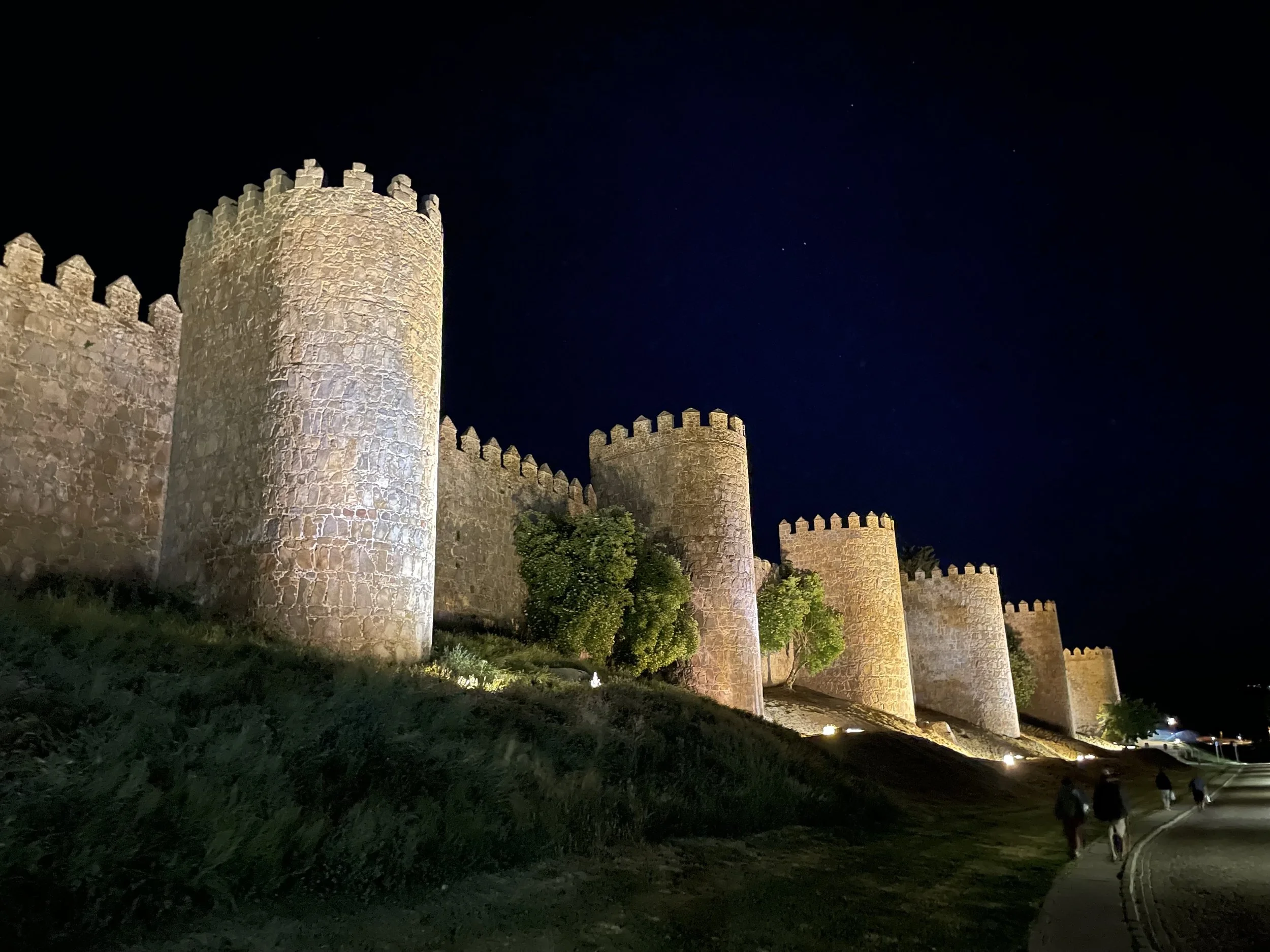Dear FBC Family,
What a gift to be home! I carried you in my heart while walking the ancient streets of Ávila and Toledo, following the paths of 16th-century Spanish mystics Teresa of Ávila and John of the Cross. Our pilgrimage days were grounded in prayer and reflection, with a gentle pace that created space for solitude and contemplative silence—along with plenty of laughter among fellow travelers.
The iconic walls surrounding the city of Ávila were constructed over a period spanning from the 11th to the 14th centuries.
I'm grateful to Pastor Eric for his thoughtful preaching and pastoral care during what became two weeks of difficult news: The murder of Senator Melissa Hortman and her husband, the Southern Baptist marriage resolution, the Supreme Court's decision on gender-affirming care in Tennessee, and the escalating conflict between Israel and Iran. Reading Sunday morning's headlines that the U.S. has entered this war left me struggling for words. As followers of Jesus, Prince of Peace, my heart grieves whenever nations—especially my own—turn to violence as a solution.
History’s Perspective
Walking through centuries-old Spanish cities reinforced for me how much we need historical perspective when our culture feels divided. The Spanish Inquisition offers a striking example.
In 1478, Ferdinand and Isabella began a brutal institution that would plague Spain for almost four centuries. It targeted anyone considered religiously suspect, particularly Jewish and Muslim converts to Christianity. Using interrogations, torture, public rituals, and penalties from spiritual correction to death, the Inquisition sought to maintain religious conformity and political power.
Many of us feel worn down by policies that change dramatically with each new presidential administration. We have historical company.
Near its end, the Inquisition faced identical cycles of reversal: Abolished in 1808, restored in 1814, abolished again in 1820, restored again in 1823—until it finally ended in 1834 under the reign of Isabella II. People spent generations wondering: Will it come back? Is my family safe? What is my neighbor saying about me? The constant anxiety must have been crushing.
Learning from the Mystics
Teresa of Ávila and John of the Cross lived under constant threat from this nightmarish system. The Inquisition viewed mystical experiences with suspicion, questioning whether direct encounters with God bypassed church authority. Both faced investigation; their writings were scrutinized for heresy.
Yet they persisted. Teresa wrote with courage about her prayer life and visions. John composed poetry capturing the soul's journey toward God (and is widely viewed today as Spain’s greatest poet). They found faith not despite the turmoil around them, but through practices that sustained them within it.
Walking where they walked, I thought about how different their faith was from the institutional religion that threatened them. While the Inquisition used fear and control, Teresa and John embodied the invitation of Jesus—to come and find rest, to abide in love, to trust in God's grace. Their mystical encounters weren't about bypassing the church but about discovering the heart of the Gospel: that God draws near to us in love, not condemnation.
Beyond the Headlines
Their example offers us a way of being present to pain without being consumed by it. These ancient Christians show us how to remain rooted in what matters most when the ground shifts beneath us. They remind us that taking the long view isn't about detachment from the world's pain but about engaging from a deeper place with God.
When fear drives the headlines, we can trust that God's purposes—revealed in Christ's life of compassion, justice, and mercy—unfold across centuries, not news cycles.
Paz y bendiciones,


